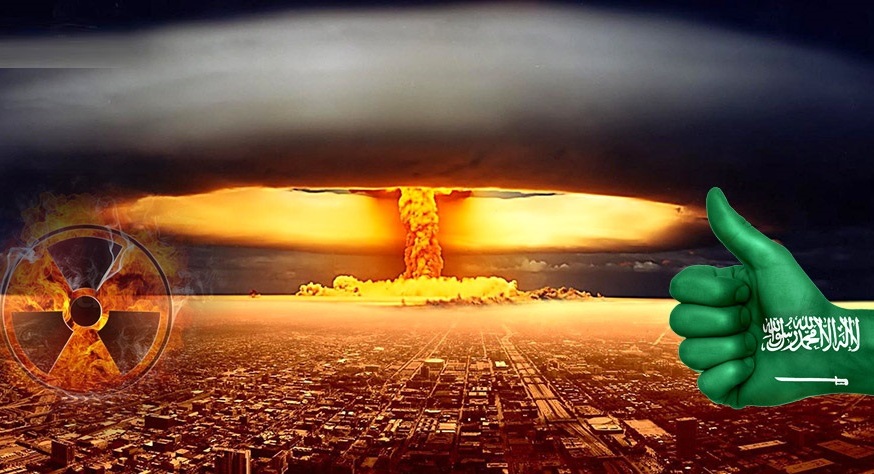AhlulBayt News Agency - In the process to review the report of the country's Committee of Water, Agriculture and Environment, Sadqa Fazel, the member of Consultative Assembly of Saudi Arabia, has questioned the activities of the King Abdullah City for Atomic and Renewable Energy, saying that the city had not built even a single power plant.
The member of Consultative Assembly, as quoted by the Jeddah-based Saudi Arabian daily newspaper Okaz, has said that “recently there have been rumors circulating that Saudi Arabia has achieved nuclear weapons, which is not true." "I supposed that The King Abdullah City for Atomic and Renewable Energy would build a modern nuclear power plant but so far we have seen no action in practice but a couple of agreements signed between the City and such countries as the US, Russia, China, France and South Korea," said the member of the Assembly. "No nuclear power plant or nuclear research facilities have been constructed there," Sadqa Fazel continued.
Fazel added that it was planned that the nuclear energy would provide the kingdom with 30 percent of its electricity needs, as it was supposed that the nuclear energy would help purify 20 percent of the country's fresh water at the initial years of operation. "Practically, it did not happen as planned," the member of Saudi Arabia's Consultative Assembly maintained.
Since the mid-1990s, many news have been published by the Western media, claiming that Saudi Arabia had made efforts to achieve nuclear weapons. Riyadh's huge oil reserves along with extensive relations with Pakistan and China on the one hand, and the kingdom's fears of Iran being a nuclear state as well as Saudi Arabia's weakness of strategy on the other hand, are seen as principal factors driving Saudi Arabia to move towards proceeding to a secret nuclear program. Creating a deterrence power in independence is said to be the major aim behind Saudi Arabia's plans for a nuclear program.
But, are Saudi leaders truly seeking achievement of nuclear weapons or it is that they want to establish a balance of power with Iran in the region and make up for their strategic weakness through other ways? What is clear is that the Saudi Arabian officials have openly declared that they were interested in having nuclear technology, and were struggling to achieve it. First whispers on Saudi Arabia's moving towards achieving nuclear arms have appeared when Mohammed Khilewi, a former Saudi Arabian UN diplomat, defected to the US in 1994.
Disclosing some documents, Khilewi has said that the kingdom had launched a research program for building nuclear bombs and confronting the Israeli regime since 1975, following the defeat of the Arab countries by Tel Aviv in the Six-Day War of Arabs with the Israeli regime in 1973. According to Khilewi, the clandestine nuclear program was run under the direction of King Fahd’s brother Prince Sultan bin Abdulaziz, then-defense minister of the kingdom. The program was started at Al-Kharj nuclear research center which was located in Al-Sullayil military complex.
As the program was practical, foreign nuclear experts were employed to work on providing a library for nuclear technology research and collect data on nuclear weapons programs of other countries. The Saudi scientists, for several months, received training at Pakistani and Iraqi nuclear weapons building facilities. According to the defected Saudi diplomat, Saudi Arabia provided huge fundings for the Pakistani and Iraqi programs for building nuclear bombs between the 1970s and 1980s, on the condition that the two countries deliver some of their nuclear weapons to Riyadh after the production, or at least expand their nuclear deterrence to cover Saudi Arabia. The Saudi officials denied the veracity of Khilewi's documents, saying that his statements were untrue. Furthermore, the experts have dismissed the credibility of Khilewi's disclosure and his claims have not been proven right yet. Moreover, no other free sources have substantiated his remarks.
Saudi Arabia is one of the signatories to the Nuclear Non-Proliferation Treaty (NPT) and the Additional Protocol. The kingdom has not signed the treaty voluntarily, rather, it was forced to sign the NPT as well as UN's nuclear-related Additional Protocol. For years, the Saudi Arabian officials have said that they would perhaps join the Treaty one day, but under the severe strains put on Riyadh by Washington, the kingdom signed the NPT in 1988.
/129
source : Al Waqt News
Saturday
26 March 2016
10:01:55 AM
743239

Report: Nuclear Energy; Saudi Arabia’s Unrealized Dream
